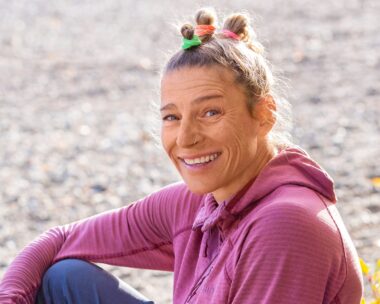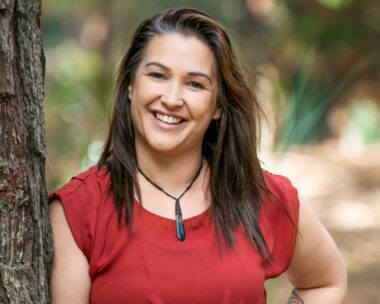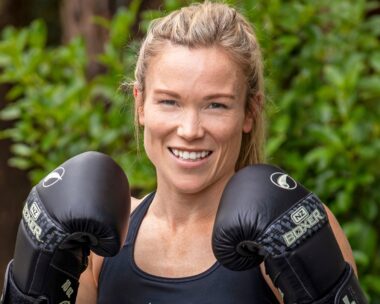As Jacinda Ardern is confirmed as the new deputy leader of the Labour Party, we revisit this 2015 story from the archives.
Politician. It’s a career that ranks somewhere near bankers, real estate agents and lawyers on the ‘untrustworthy profession’ scale. It’s a job that inspires rage at worst, indifference at best. And when a politician makes headlines, it’s normally not the good sort.
But Jacinda Ardern is different. Why? Because she is just… well, so darn likeable. Whip-smart, well-spoken and with that trademark dazzling smile, she’s the kind of person you’d want to get stuck next to at a dinner party.
Plus it’s hard not to love an optimist – and everything I’ve ever read about Ardern refers to her as being just that. Which might seem strange. You’d think optimism might be in short supply after the November 2014 election, which saw National win a third consecutive term and delivered Labour a fairly crushing result. But 2015 is feeling better, says Ardern.
“We’ve weathered a few storms over the past six years but there’s a real sense of positivity in the team,” she says. “[Labour leader] Andrew [Little] is great, as well. He’s a genuinely lovely person but he’s got a real strength of character you really feel when you’re in his presence.”
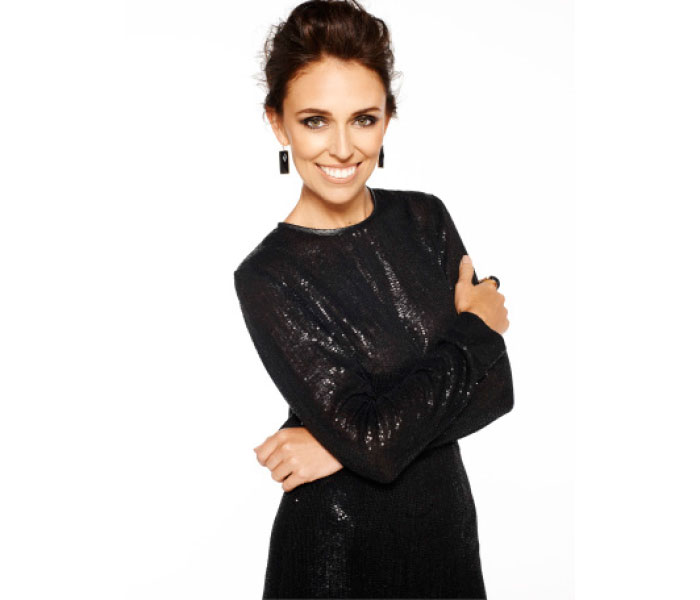
It’s exactly the kind of thing you’d imagine a person in her position would say and yet, with Ardern, you can’t help but believe it.
Sitting on a couch at the photo studio, freed from the ballgowns and back into an elegant wrap dress, it’s like having a chat with a friend over cups of tea. In fact – and it’s both anti-feminist and probably anti-intellectual to point it out – the first thing I say to Ardern is if this whole day job doesn’t work out, she could always consider a career in modelling.
After watching her in front of the camera in a series of dresses, each more elaborate than the last, you can hardly blame me. But, of course, you wouldn’t say it to a male politician (although lord knows you’d never have any reason to) and as one of our best and brightest talents, it’s her day job that’s of interest.
There are a handful of politicians known on first-name basis the country over. At 34, Ardern is one of them. Her age, and gender, have helped set her apart from the (majority white, middle-aged, male) line-up that makes up our political sphere. The combination of which has helped turn this small-town girl from Waikato into a star, and one of the most consistent faces of the Labour party – not an easy task when your side has gone through a period of power-shifting so tumultuous it looks like a bloodless version of Game of Thrones.
“I went in with my eyes wide open about what politics would be like, but I’ve never lost that idealism,” Ardern says.
However, it was a decision she put a lot of consideration into.
“I thought by saying yes to politics, I was saying no to a lot of other things in my future.”
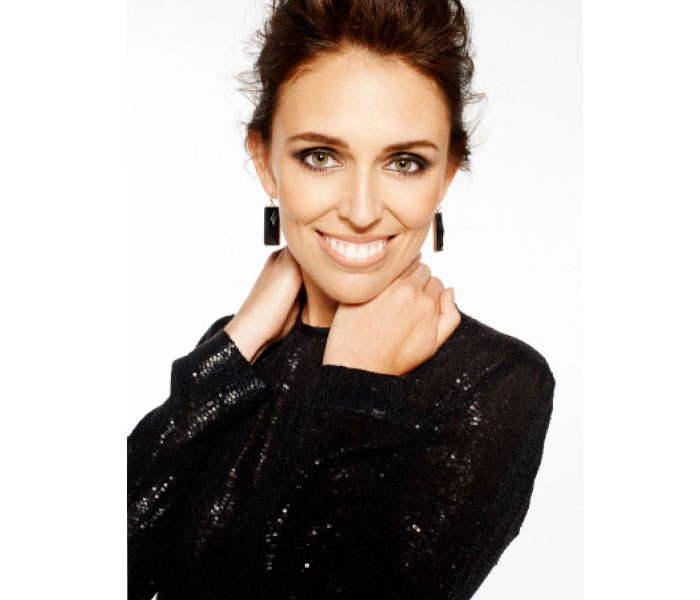
It’s true a life in politics can be short on a lot of other things – family life, weekends, general fun – but for Ardern, it was a career path she started on when she was young.
Despite her Waikato hometown of Morrinsville being more socially con-servative, Ardern always felt aligned with Labour values. She cites her parents as an enormous influence on her life and community spirit – her dad has worked for 40 years in the police – and she remembers as a child being aware of the inequality around her.
“Obviously I didn’t know anything about Rogernomics as a five-year-old, but I saw children around me didn’t have what I had, and that didn’t seem fair. And I think if you strip it all away, that’s still as true now I’m a 34-year-old as it was when I was a five-year-old. That planted a seed for me at a young age. It was a wonderful community, but man, they saw hardship.”
At 17 she signed up as a volunteer for the Labour Party, a move that saw her ‘nicely teased’ by her friends. I suggest she must have been a relatively squeaky-clean teenager to be thinking so seriously and she wryly acknowledges her religious upbringing may have played a part.
“The benefit of being raised Mormon, even though I’m not any longer, probably meant I had a few different teenage experiences,” she laughs. “In saying that, I wasn’t sheltered. But I was the only Mormon in the village, along with my sister.”
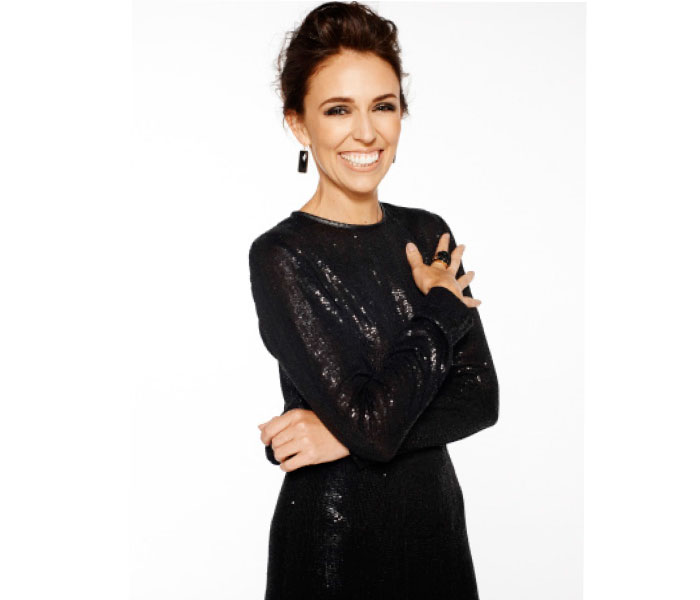
While she always knew she wanted to work in politics, she never really expected it would eventuate.
“It just never felt possible; why would a girl from Morrinsville College be among 120 people in parliament?”
But the girl from Morrinsville College has made it that far, and in record time. Ardern was just 28 when she became an MP, at the same time the similarly young National MP Nikki Kaye hit the scene, both competing for the Auckland Central seat.
The media – and public – were beside themselves, and the contest for the seat became known as the ‘battle of the babes’. So began her first proper brush with what it’s like to be female, and young, in politics – apart from being mistaken for fellow politician Phil Goff’s secretary, which happened repeatedly when she started out.
“I think we need to weed it out, and we need to build a place where young women feel comfortable,” she says of sexism. “But, equally, you always feel there’s a sense of judgement if you dwell on it too much. That was a real dilemma I had during the ‘battle of the babes’ headlines. There was certainly the opportunity, if you wanted, to really rally against it. Yet, had we done that, to what degree would we then be portrayed as being humourless or overly sensitive?”
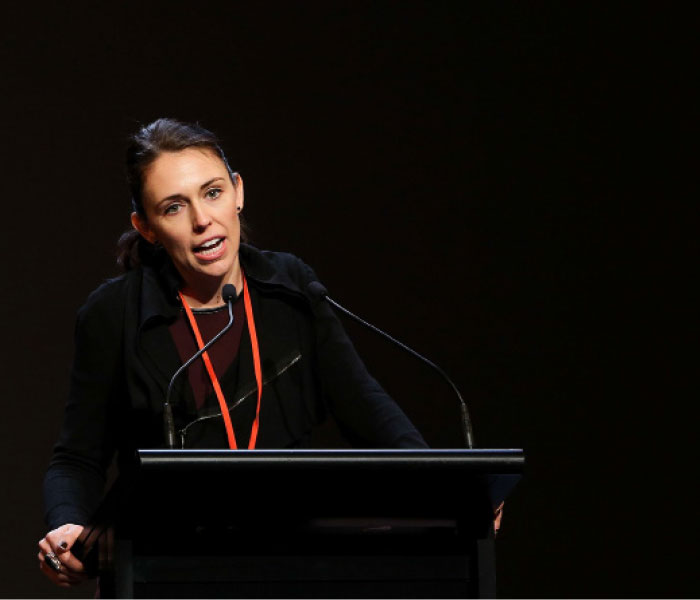
Speaking at the Labour Party Congress in 2014
Both women refused to pander to the headlines, but Arden does wonder if it was a missed opportunity.
“We both ran really robust campaigns and, through our actions, demonstrated it wasn’t a campaign that should be trivialised. But I still think, am I copping out by not challenging these things more openly?” She thinks for a minute. “Yeah, I don’t have the answer to that.”
When was the last time you heard a politician admit they don’t know it all? Anyway, she’s quick to point out politics is a far friendlier place for women than it once was, thanks to politicians who carved the path.
“That was a heavy burden to carry. When you look at the number of women who were even in parliament at the time of Helen Clark, that would have been a very lonely experience.”
For the record, in the pre-MMP days of the early 90s, women made up just 21 per cent of parliament. Two decades later, it sits at around 32 per cent, with just 39 female MPs out of 121.
When she was just starting out in politics, Ardern spent time in Clark’s office while she was prime minister. So what did she learn from the halls of power, back when Labour was in charge?
“That I didn’t want to be prime minister!” she laughs. “Not that I ever thought I could be, but I’d watch Helen and wonder if I even wanted to be an MP. She had an enormous work ethic. Just huge.”
But isn’t the PM’s office where all politicians secretly – or not so secretly – want to end up? Perhaps, but from an outsider’s perspective, it doesn’t look like a tempting role. As for the next generation of young politicians, Ardern acknowledges there’s still work to be done in encouraging people politics is a good place to work, given the level of brutal scrutiny politicians find themselves under.
“It’s hard to be human and in politics. If you get it wrong, it’s a very public thing. But I think parliament wouldn’t be representative if we just had all of these people who had lived perfect lives.”
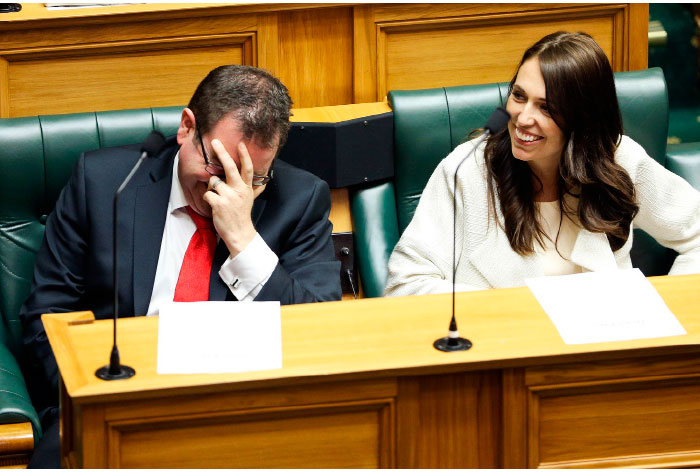
With Grant Robertson in Parliament.
Early on in her career, Ardern was afraid she was taking the sudden influx of public opinion too personally, that she needed to toughen up. So she went looking for advice.
“I remember thinking, ‘I’ll ask the politician who seems like he’s got the toughest skin to me, in the Labour Party.’ So – and I hope he won’t mind me saying this – I went and asked Trevor Mallard, ‘How do I toughen up?’”
Mallard, who once punched fellow politician Tau Henare in the lobby of parliament, had some surprising advice.
“He said, ‘You don’t. And if you do, then you stop being a good politician.’ It’s so true; you start losing your humanity if you don’t feel emotions when people are critical.”
So, in the face of all this criticism, can we take it her optimism gets tested quite regularly?
“Every day,” she laughs. “I don’t think I could survive in politics without having optimism. But I feel like I’m surrounded by a lot of optimists. People who are driven to do good. When that’s your motivation, you can endure quite a bit. If your motivation is any less than that, it might be harder getting out of bed in the morning.”
And what about the flip side of that? With a job as all-encompassing as politics, where a trip to the supermarket might involve someone accosting you about the civilisation of the military while you’re in the muesli aisle (this actually happened), you can imagine trying to switch off at the end of each day might be a hard ask. With myriad social problems facing New Zealand, what’s the one issue that keeps Arden up at night?
“The children’s portfolio. I remember being unwell once, with the flu, and I was at home but I had a lot of reading to do. I spent the afternoon reading coroner’s reports of young people who had died while under the care of Child, Youth & Family. When you read these individuals’ stories, like the child who witnessed so much domestic violence they took their own life before they became a teenager, those kind of things keep me awake. Because there’s always more you can do.”
It’s this that frustrates her the most about politics – in fact, what frustrates a lot of us. Things do not happen quickly in government. It feels, I say, change happens in a ‘one step forward, two steps back’ kind of way, but Ardern compares it more to endless pacing on the spot, particularly when you’re in opposition.
“You put your heart and soul into these great ideas and you wait until you can do it. Because of the way elections are built up, people think it’s all about the win. But the emotions we feel as politicians are ‘that’s another three years where we don’t get to help that person in the way we want to.’ That’s why politics is a deeply personal thing. It’s not just about winning the game.”
It may not be a game, but there is definitely some team politics when it comes to picking the top players.
In the Labour leadership shake-up in 2014, Grant Robertson named Ardern as his deputy, but she missed out when Andrew Little ultimately became leader. You couldn’t blame her for being disappointed, but the musical chairs rigmarole of Labour in recent years has left her philosophical about the entire situation.
“I’m quite a ‘what will be, will be’ person. You learn early on, it’s such a fickle place and that’s why I try to never have too much of a plan,” she says. “That way you don’t have to worry about disappointment.”
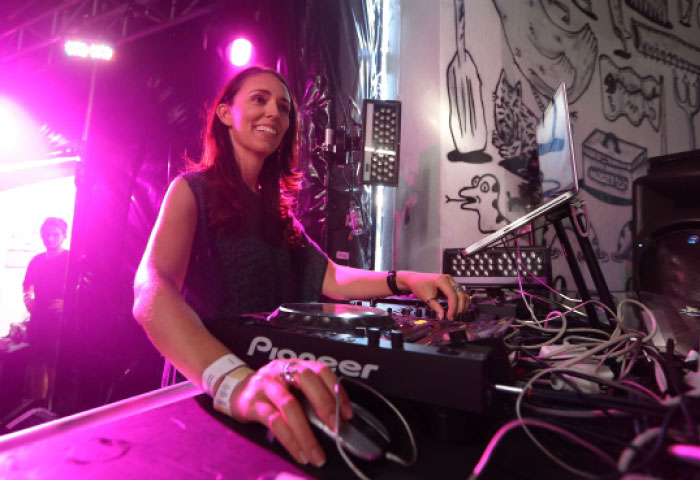
DJing at Laneways Festival
You have to wonder if the unpredictability of the job is another reason she’s still hestitant about wanting to run as Labour leader. She’s quick to say whenever asked it’s not her ultimate ambition, but that hasn’t stopped her from being considered by others as a sure-fire possibility in the future.
Straight after the dismal 2014 election result, TV One ran a poll asking who should take over from David Cunliffe. Ardern was the clear favourite, taking 41 per cent of the vote.
But she questions if it would be the right role for her.
“I always said, perhaps naively, I’d like to be a politician but just have a little bit of a normal life as well. I never want to resent what I do, and part of not wanting to resent it is to keep a little bit of myself. It sounds so selfish…”
It doesn’t; it sounds like the battle most professional women face. Every one of our male prime ministers has managed to have a family, as well as a job, so our female politicians should be allowed the same option. And being PM is one job where age can be a plus, as it can be seen as equating to wisdom.
But, as Ardern points out, too much experience can also count against you.
“When I first came in, some of the criticism Phil Goff would get would be the length of time he had spent in the job and I thought, ‘What a curious thing!’ There’s a lot of competing expectations as to what people want their politicians to be.”
It doesn’t help we all have a slightly unrealistic sense of what goes on in government, thanks in part to television. Programmes about politics show us the extremes; back-stabbing (House of Cards), mass incompetence amid snark-filled one-liners (Veep, The Thick of It) and pie-in-the-sky, rousing liberal smugness (The West Wing). So which is the most accurate?
“The Thick of It I can’t watch; it makes me cringe too much, so I don’t know if that’s saying something,” Ardern laughs. “Veep is very funny. House of Cards I haven’t got round to watching because I know I’ll get addicted. I think we’d probably want politics to be like The West Wing, but the halls of parliament aren’t long enough to do the length of walk and talk they do on that show. But it’s a fascinating place, and that’s true of all those shows. It’s complicated, and there’s so many different dynamics that are juggling all the time, and it’s addictive. And… strange people work in it.”
Strange, but passionate?
“Strange, but very passionate,” Ardern amends. “I use the term ‘strange’ in the most affectionate way possible, because I’m one of them.”
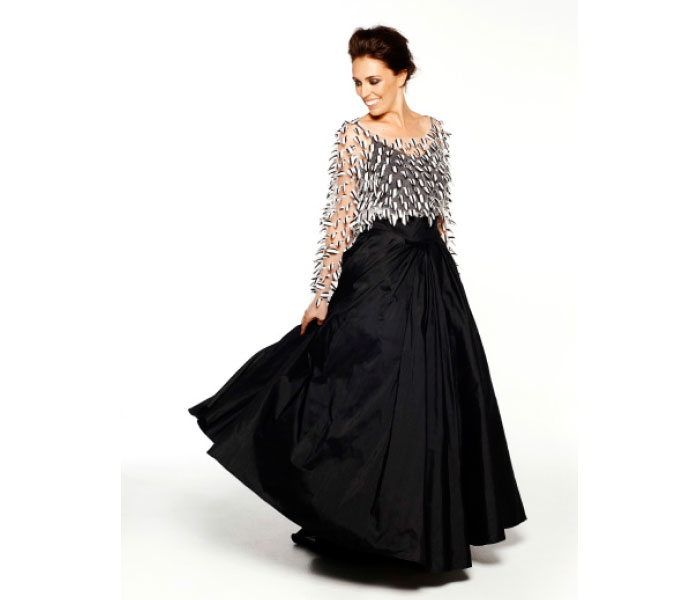
As well as being one of the strange ones, she’s managed to carve herself quite the niche as a ‘cool politician’. She’s scored guest DJ gigs (she downgrades this to ‘tune selector’), she goes to a lot of live gigs, she has a popular Instagram account… heck, she even used Tinder during the election (for professional purposes, mind).
She’s also dating TV presenter and radio DJ Clarke Gayford, who was previously in relationships with Shortland Street’s Shavaughn Ruakere and singer Hollie Smith. The pair met through her day job, not her musical hobby, she laughs. “He contacted me about an issue that was bothering him, and that was how we first got in contact. And we became friends. I’ve had some people ask if we met through DJing – definitely not!”
Ardern stays relatively quiet on the relationship; the pair have been dating for “a few good months”, she says – but he often attends official events with her.
“He’s a politically engaged person, so he’s very interested in what I do.”
It’s all part and parcel of the normal life she tries so hard to keep balanced with her professional one, and she admits having a family may also play into that one day. Her sister has just had a baby, and Ardern says being an aunty has been lovely. She jokes “it’s channelled a lot of my parents’ energy, which is great…”
Does she think New Zealand is ready for a female prime minister who has children?
“I certainly hope so,” she says. “Equally, I hope we’d be accepting of one no matter what their status was. Male, female, the question we should ask is if that person is doing a good job of representing us, and doing a good job for New Zealand. But there are so many other things that still come into people’s judgement.”
Which brings us back to fashion, and what we at NEXT like to think of as ‘the Amal Clooney effect’. You can be the smartest person in the room, but as a woman, your outfit choice is still the first thing up for debate.
You’ll notice in our shoot Ardern wears dresses: sparkly dresses, short dresses, feathered dresses and more. The attitude of ‘I’m in a man’s job, therefore I will dress as such’ does not seem as prevalent as it once was. Are the sartorial rules for female politicians finally moving past the unofficial uniform of plain slacks and a muted blazer? Not so fast, says Ardern.
“I still think, ‘Am I going to be criticised for this?’”, she says. “Because you don’t want to detract from doing the job you want to do. When there was a fight in parliament recently between female politicians about attire… I don’t think any of us are better off when we have debates like that.”
She’s referring to comments made last year about Metiria Turei’s jackets, when police minister Anne Tolley suggested Turei was a hypocrite for saying the government was out of touch with poor Kiwis while wearing a designer jacket.
Another debate Ardern found unnecessary was the backlash following The Luminaries author Eleanor Catton’s remarks this year about New Zealand being filled with “neo-liberal, profit-obsessed”, money-hungry politicians who didn’t care about culture.
If you’ve ever wondered what brings out Ardern’s own fighting side, it’s when people get patronised.
“The last thing I think you should do is try to undermine someone’s right to have their say or – and this really bothered me – claim someone doesn’t know enough about politics to comment,” she says. “Every citizen has a stake in politics and their government. It shuts down healthy debate if we’re demeaning about someone sharing an opinion. Of course we should challenge each other, but I think challenging someone just by putting them down is a bit of a cop-out.”
There’s some serious fire in her eyes at this point, and you can sense Ardern’s own experiences of being an outspoken young woman in a still male-dominated industry could be fuelling it. She won’t be drawn into that comparison, stating only, “Let’s have debate! But you can be respectful about who’s saying it, and I don’t think they were respectful about her [Catton].”
Ardern clearly takes the job very seriously but is refreshingly self-deprecating. When I ask what’s on her reading list, and she gives a detailed spiel about Cold War spy novels, finishing off Patched: The History of Gangs in New Zealand, and her favourite Antarctic exploration books, she comes across – in a good way – like a huge nerd. I tell her this, and she laughs loudly.
Her love for Ernest Shackleton is well-documented, so much so a friend gave her a pendant for Christmas with ‘Endurance’ written down the side – the name of the ship used in Shackleton’s failed Trans-Antarctica expedition.
“The lesson I took from him is leadership isn’t always just about reaching your goal, it’s about how you bring a team together on the way,” she says. “Not that I want that to become my mantra for life – ‘survive despite failure’. People ask me a lot, ‘What do you want to come out of politics with?’ and it’s not always guaranteed you’re going to be able to tick off a list of achievements or pieces of law. So if I can do the best I can, on behalf of the people who put me there, and come out with integrity, then I will feel like I’ve, in some ways, succeeded.”
Photographs Karen Ishiguro*
For more from NEXT, follow us on Facebook and Instagram here.

